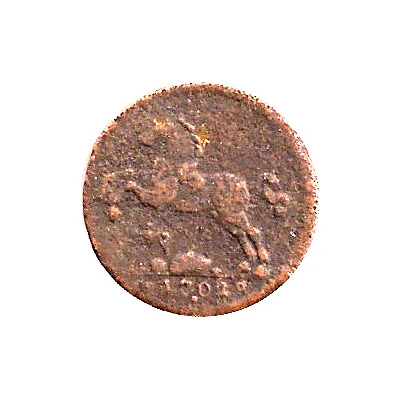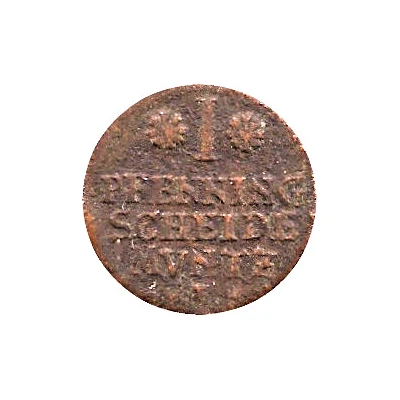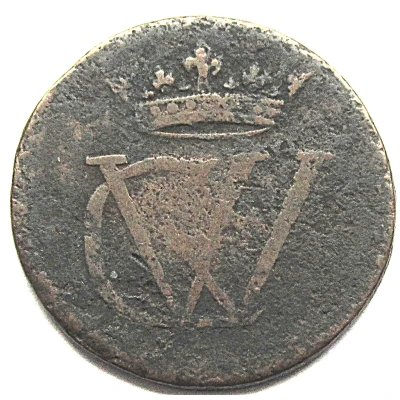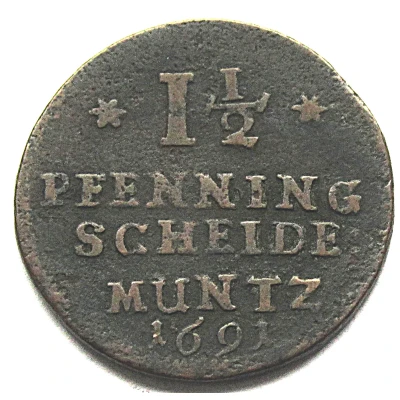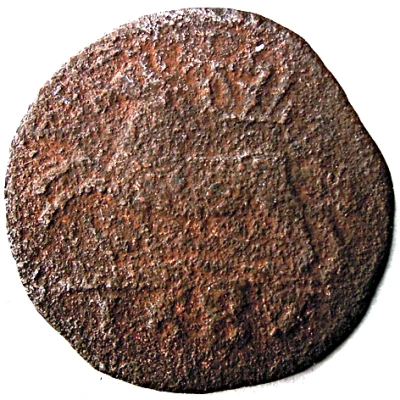
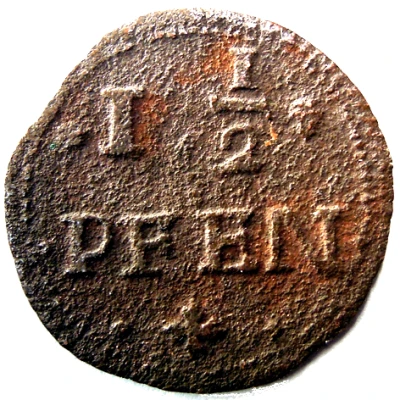

© SP
1½ Pfennig - George II William
| Copper | 1 g | 18 mm |
| Issuer | Brunswick-Lüneburg-Celle (German States) |
|---|---|
| Duke | George William (Georg Wilhelm) (1665-1705) |
| Type | Standard circulation coin |
| Years | 1687-1689 |
| Value | 1½ Pfennig (1⁄192) |
| Currency | Thaler |
| Composition | Copper |
| Weight | 1 g |
| Diameter | 18 mm |
| Shape | Round |
| Orientation | Medal alignment ↑↑ |
| Demonetized | Yes |
| Updated | 2024-10-05 |
| Numista | N#135080 |
|---|---|
| Rarity index | 86% |
Reverse
2-line inscription with denomination.
Script: Latin
Lettering: 1 1/2 pfen
Edge
Plain
Interesting fact
The 1½ Pfennig coin was minted during a time of great economic and political change in the German States. The coin was introduced as part of a new currency system implemented by George II William, Duke of Brunswick-Lüneburg-Celle, in 1687. The coin was made of copper and had a unique design, featuring an image of the duke on one side and the coat of arms of Brunswick-Lüneburg-Celle on the other. Despite its small denomination, the coin played an important role in the local economy and was widely used in trade and commerce. Today, the 1½ Pfennig coin is a rare and valuable collector's item, highly sought after by numismatists and historians interested in the history of the German States.
